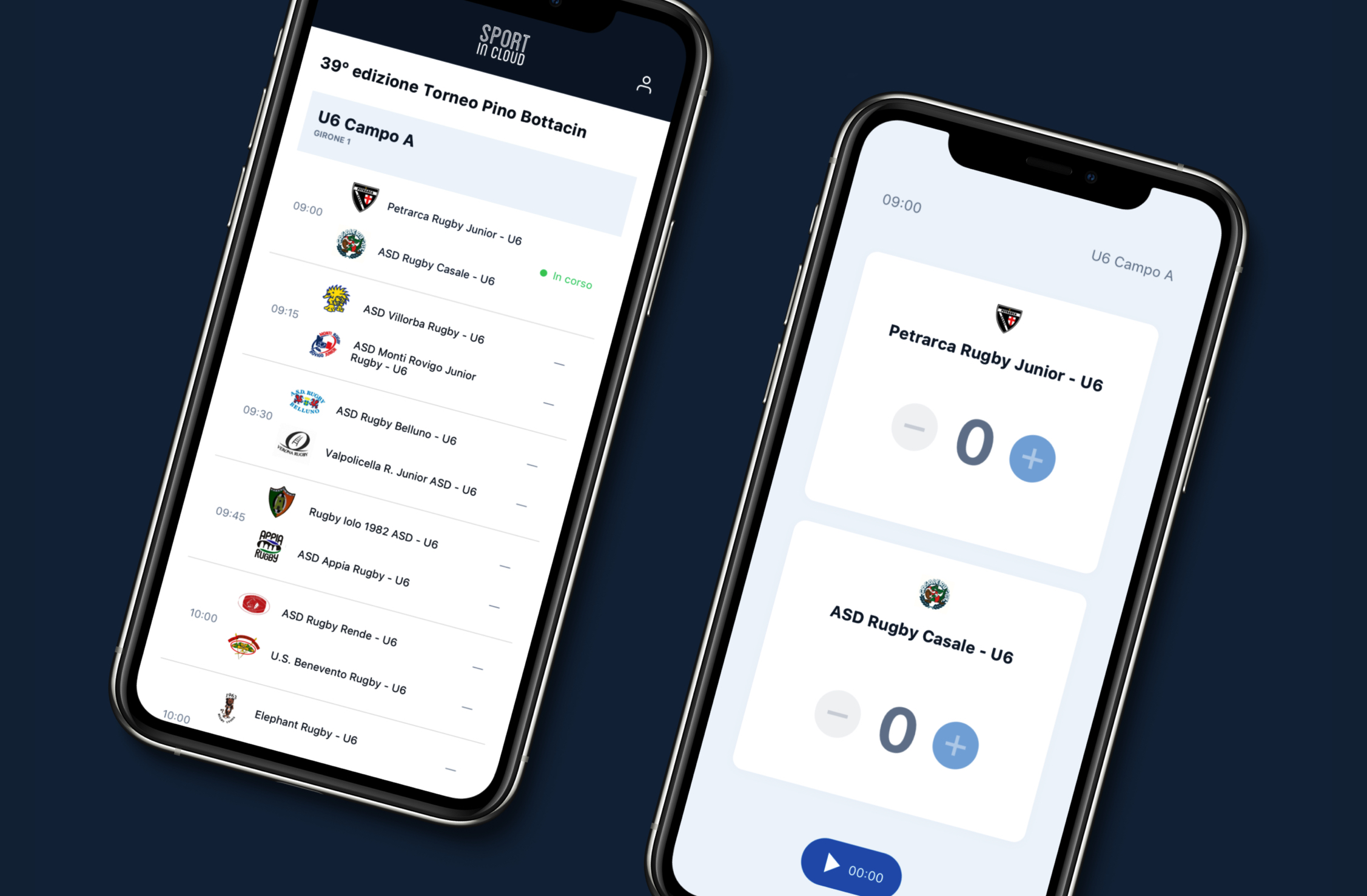Uqido Deep Dive
and web platform
Design Thinking
Progressive Web App
UX/UI Design
Software Development
This project was to digitise the creative process of MiniRugby tournaments and enabled sports clubs to manage in real time and give them the rights to invite and register teams, to manage results and penalty cards, to create pairings and rankings, and to display all results to the public.
Creating a web platform to manage sports tournaments, accessible to all players in the game with the use of desktop and mobile applications.

MiniRugby, a tough match
A MiniRugby tournament is a complex event: the sports club that organises it must set up several smaller tournaments, one for each category. In each of these, the respective teams play a first group stage and, subsequently, all teams must then play in the knockout stages to generate the final table.
The results of each match is recorded by the match directors on paper cards signed by the coaches when the match is over. The scores and pairings are written on a notice board which all participants in the event can access if they need to consult one another.
Before our work on this project, all this happened in a completely analogical way, which led to poor timing and difficulties managing.
For this reason, the heart of the project was to digitise the development of the tournament, such as the invitation and registration of teams, the management of results and penalty cards, the formation of the pairings, the rankings and the live display of all results to the public.
All the functions described are normally used by a large number of people, with different needs. For example, the referee needs an interface different from the public who are only interested in viewing the results. The platform had to bring together all the users’ needs and lend itself significantly to different uses.
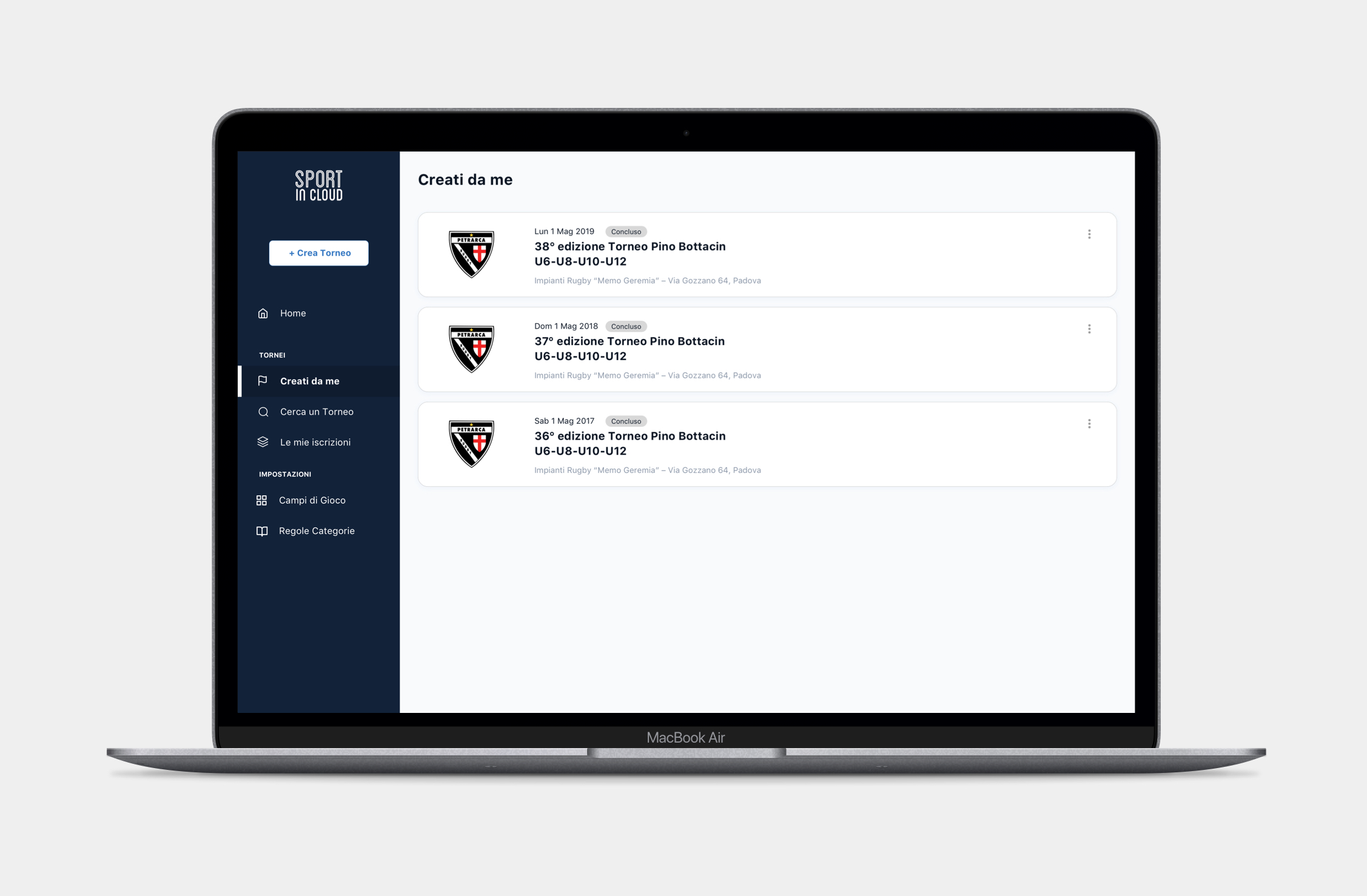
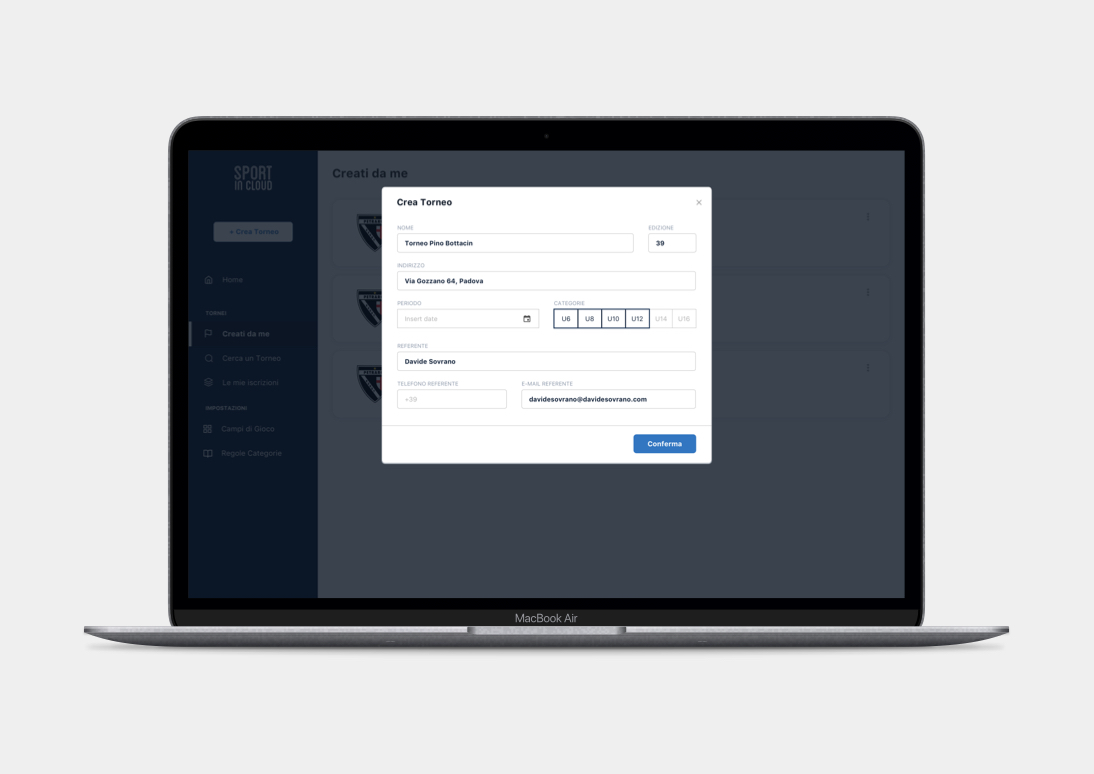
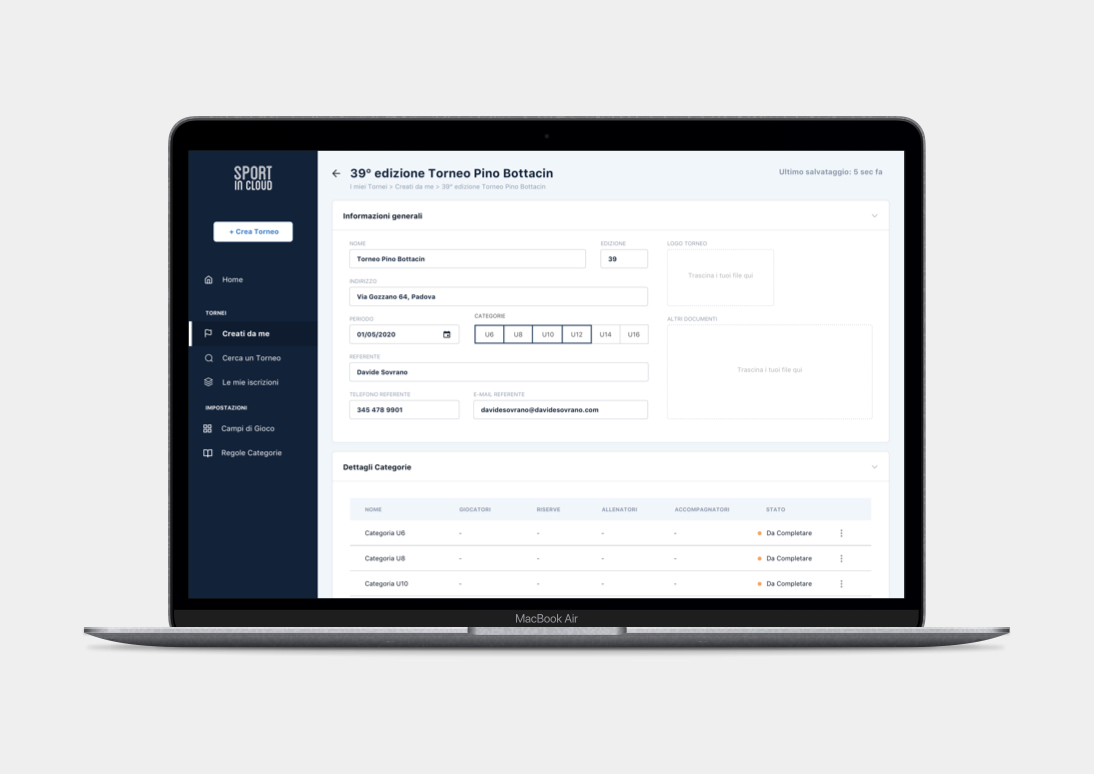
The Uqido team on the field
The concept was already clear in the client’s mind: they needed a tool to share information with the Uqido team to develop a platform that is efficient.
So, our first step was to send the client a questionnaire to get basic information such as objectives, users, scope of the platform, etc..
Our designers took a week to collate the questionnaire which was a series of questions to identify: the long term goal, project questions, user goals and sections concerning the storyboards for the main flow within the platform.
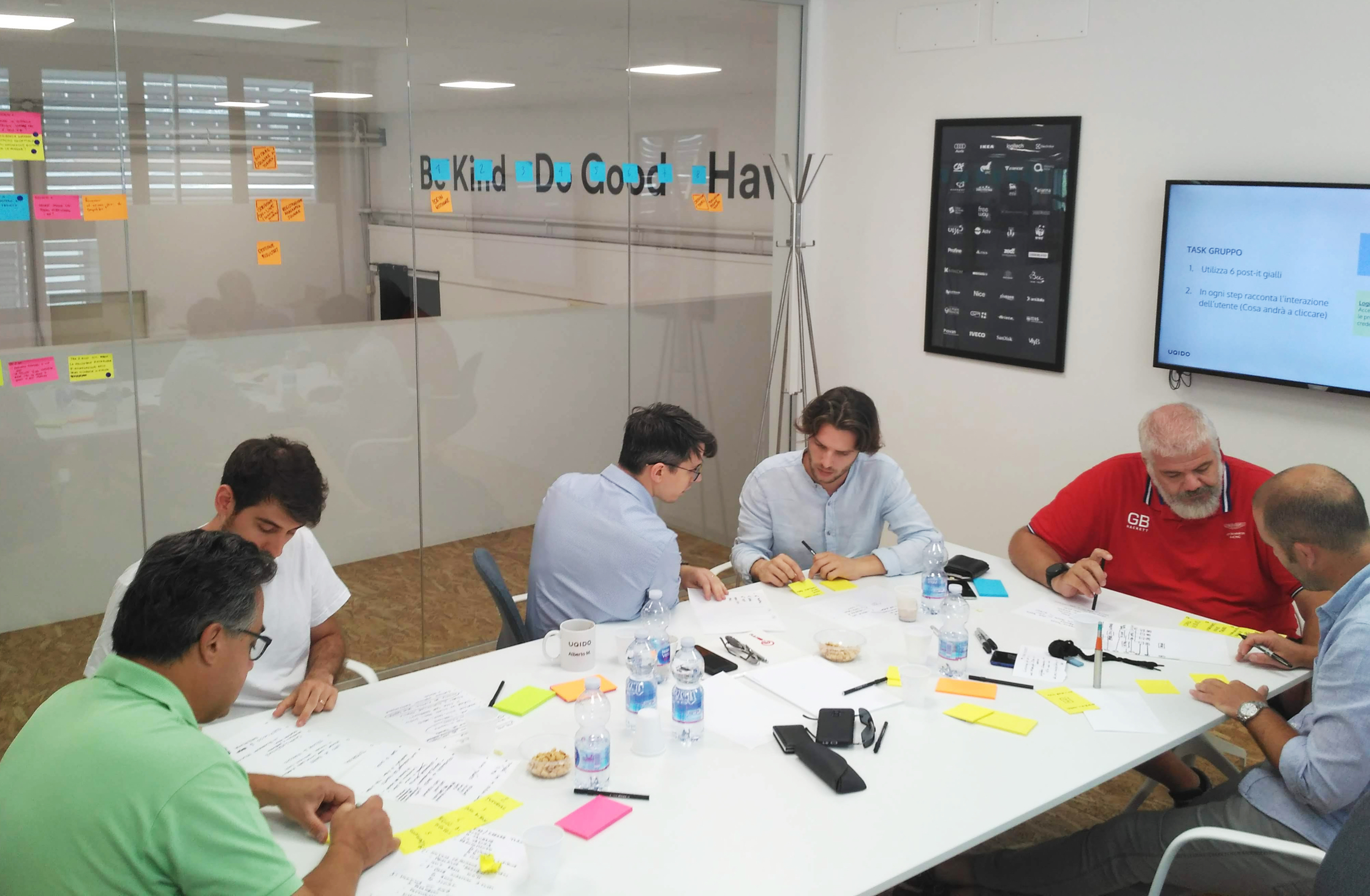
We were able to count on fast and timely feedback cycles due to regular meetings with the client. We identified Agile SCRUM as the best development methodology, which we divided into two weeks of four sprints.
The first sprint was dedicated to design: design and information architecture, wireframe and the mockup. The next three sprints were dedicated to software development.
To begin with, we established an information structure for the different types of users: the SuperAdmin, sports clubs and spectators. Then we created the wireframe for the content layout and moodboards, giving a visual identity to the whole app.
We validated the style proposals and the color-based palette of the Sport in Cloud site, the main components and two examples of pages. We populated the product backlog: in this phase we worked with the client to write the user stories related to the wireframes, in particular the admin’s management of sports clubs and its creation of a tournament. Each of these sections was classified as “core” and “nice to have” features.
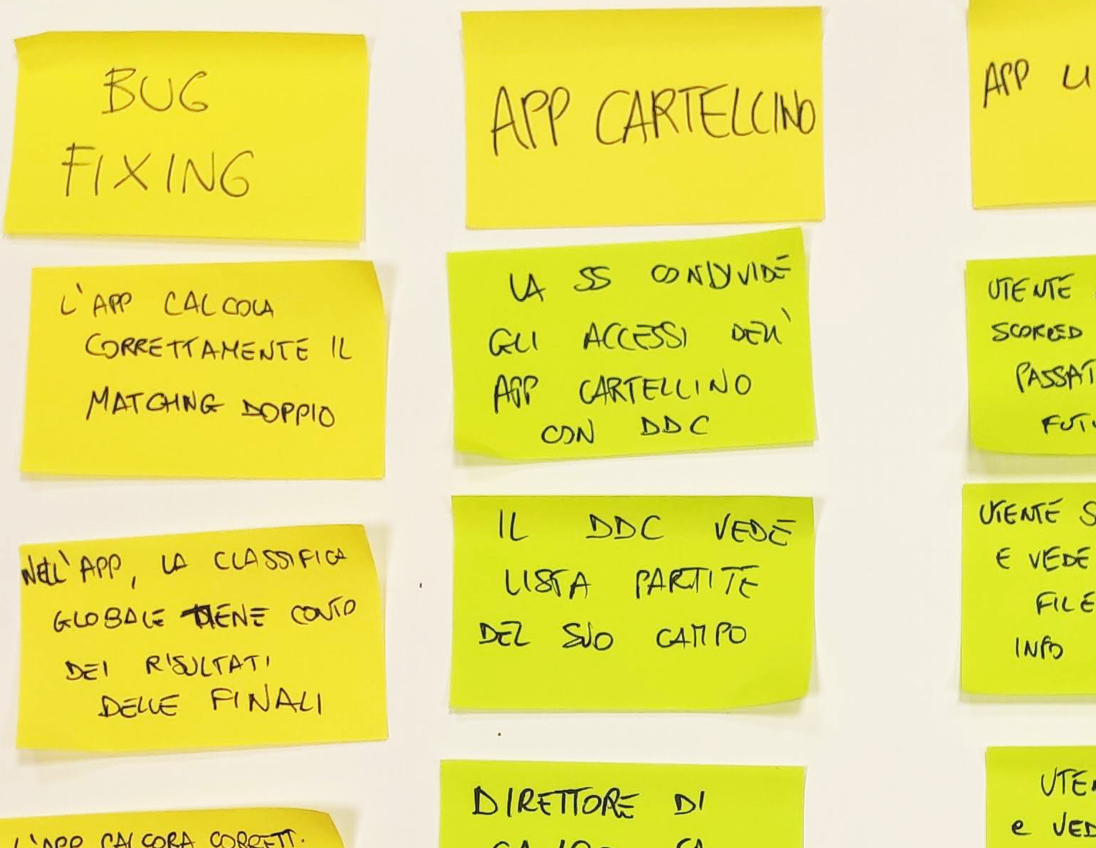
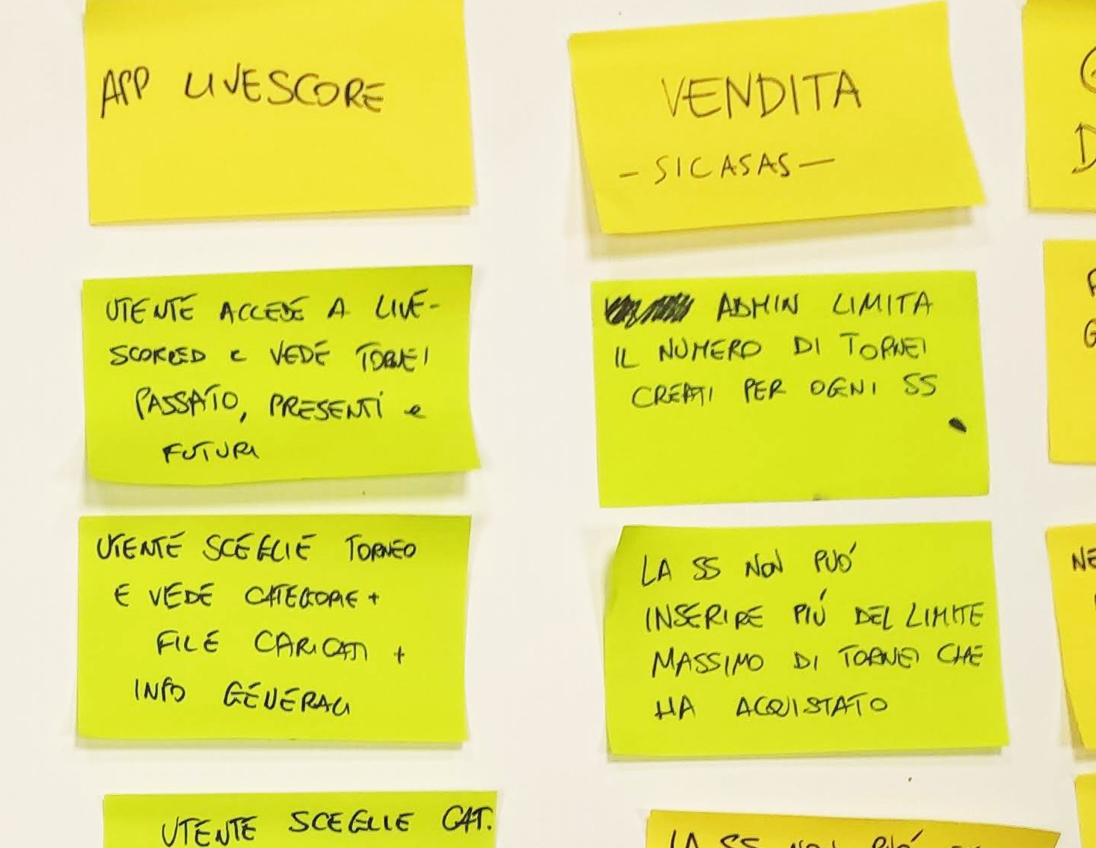
Development
Once the first sprint dedicated to design was complete and the backlog populated, the software development phase of the next three sprints began.
The software is divided into three main parts: “Management”, “Penalty Cards” and “Live score”. “Management” has the most advanced algorithms of the platform, “Live score” instead represents an absolute novelty for the sector: in fact, the market does not offer other services that can present live results of MiniRugby matches online.
The web platform, which makes reporting live results possible, is developed in Ruby on Rails, with Stimulus JS components and is tested using Minitest, with a library of components in Storybook and corresponding visual regression tests.
At the end of each sprint we met with the client and illustrated the results of the development, uploading what we had discovered in a staging area, making it possible for the participants of the meeting to understand each step.
We described the main flows such as the user login, the sports club’s new tournament, the configuration of a single category of a tournament and the results. Score!
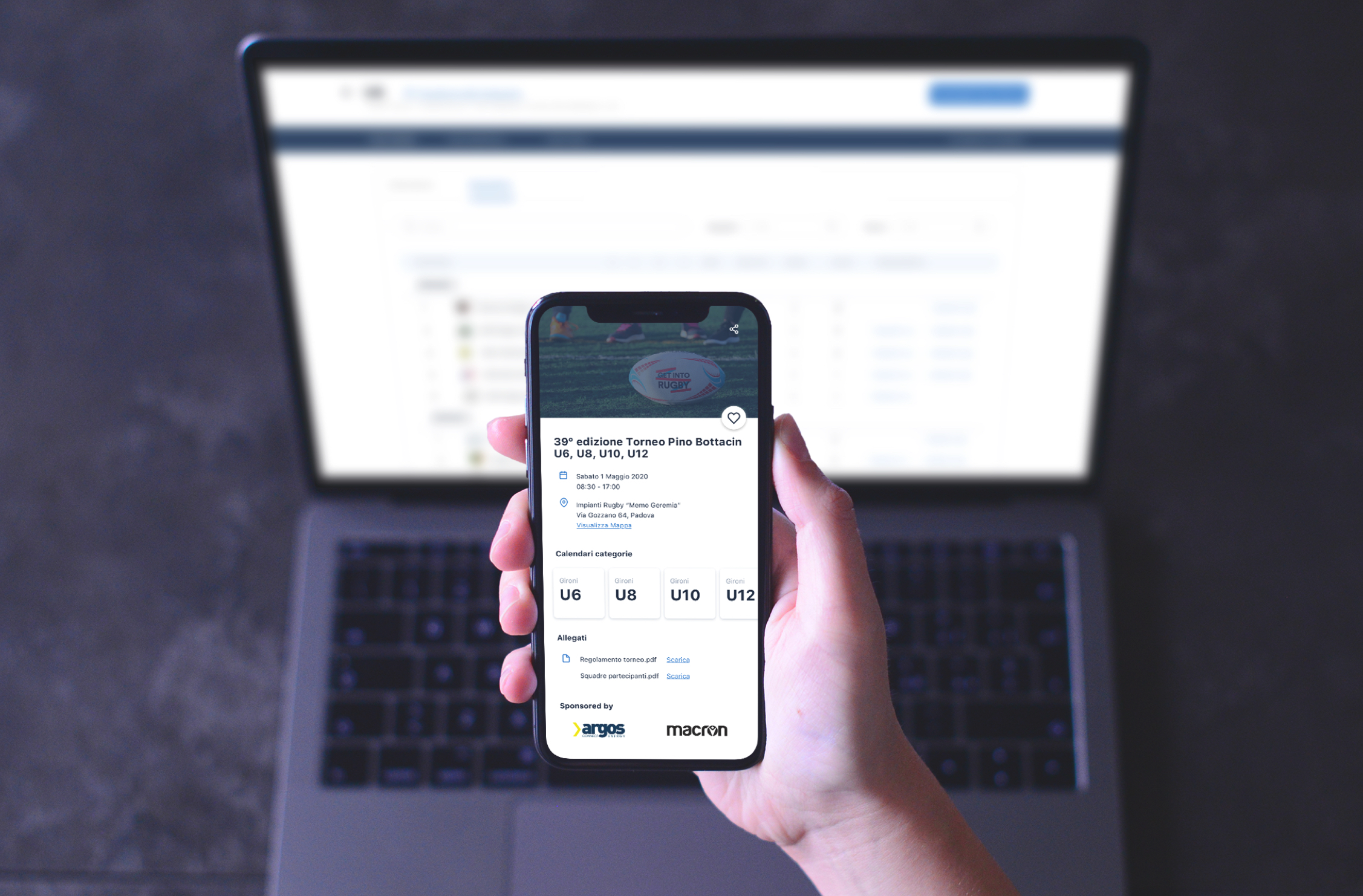
Core value
Organising a MiniRugby tournament and managing it effectively is a complex process that requires time and resources. You need to digitise the flow, and optimize your efforts by making the tournament more user-friendly and accessible to the public.
Now, thanks to Uqido, Sports in Cloud can provide a much better user experience than its competitors, both for sports clubs and for field managers and spectators.
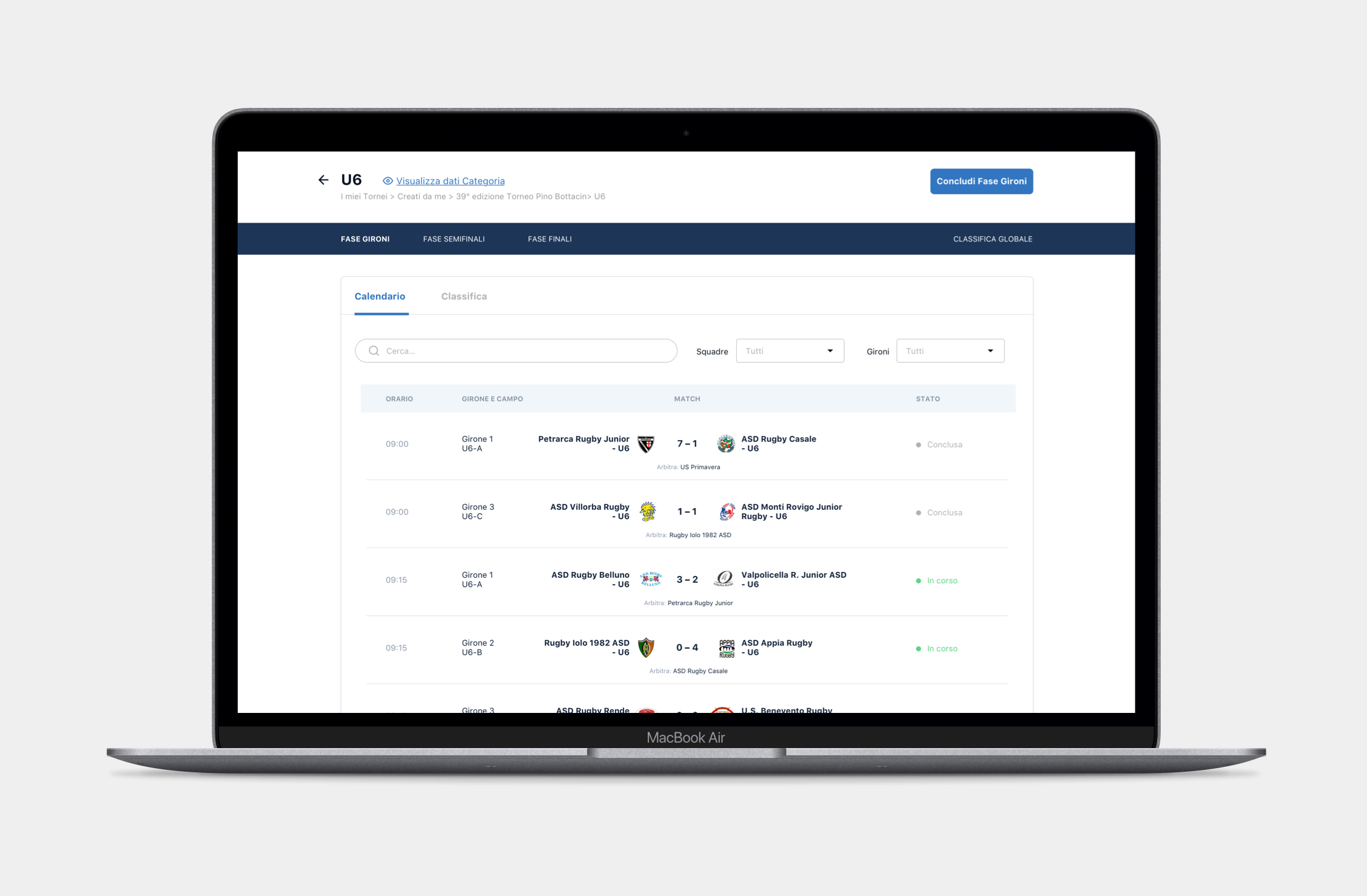
The result was achieved by taking care of the design phase in detail. Even before writing a single line of code, every single functionality was conceived, graphically designed, completed and tested. We also carried out user testing on different types of users of the app, recording their reactions and impressions.
As in the case of 3Bee, Design Thinking, in its Uqido Deep Dive form, proved to be a fundamental tool to create a digital product that is really useful to users. In addition to this, there is an Agile SCRUM development, particularly suitable for products with a high rate of innovation that, as such, are not free from difficulties and the unexpected but thanks to an iterative development, it can be successfully addressed (read more about the Agile SCRUM development of Uqido).
